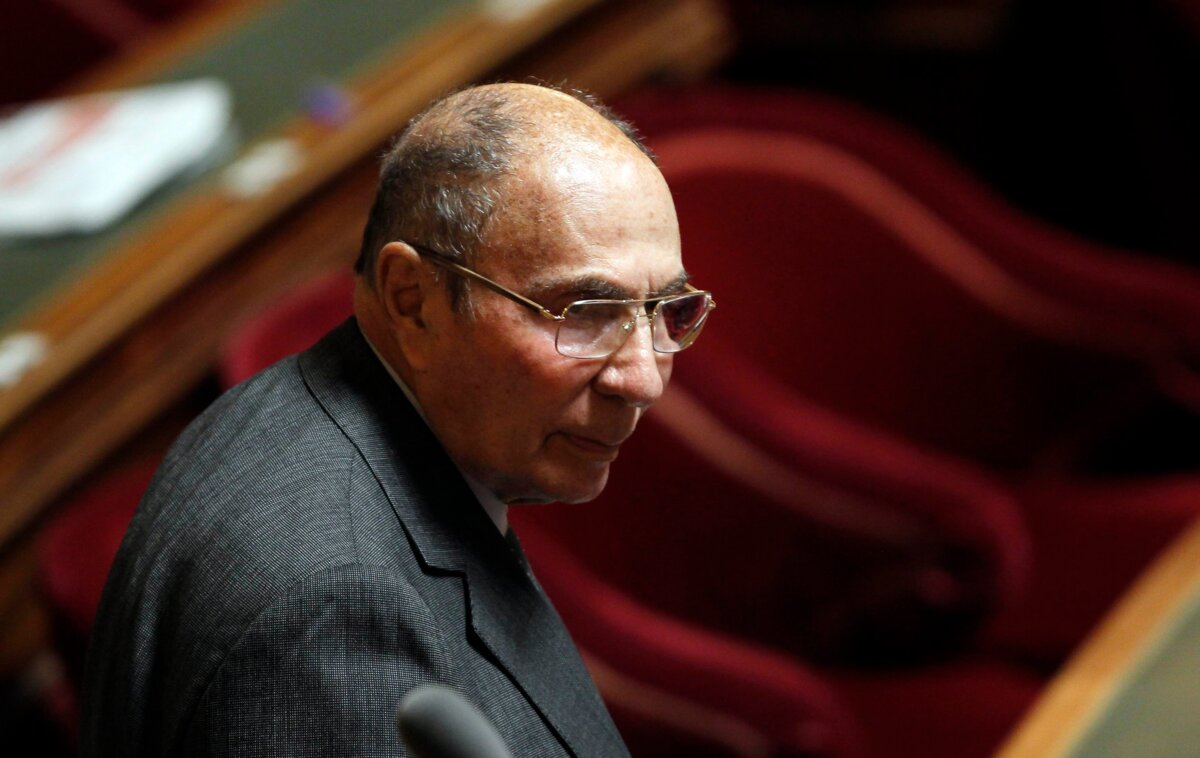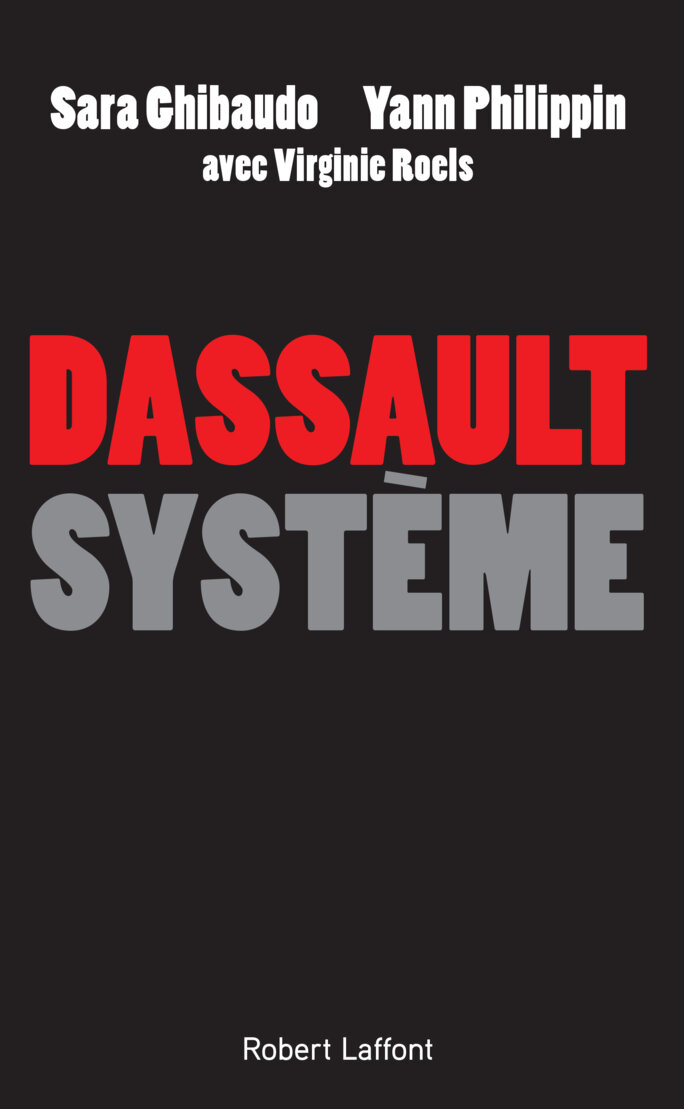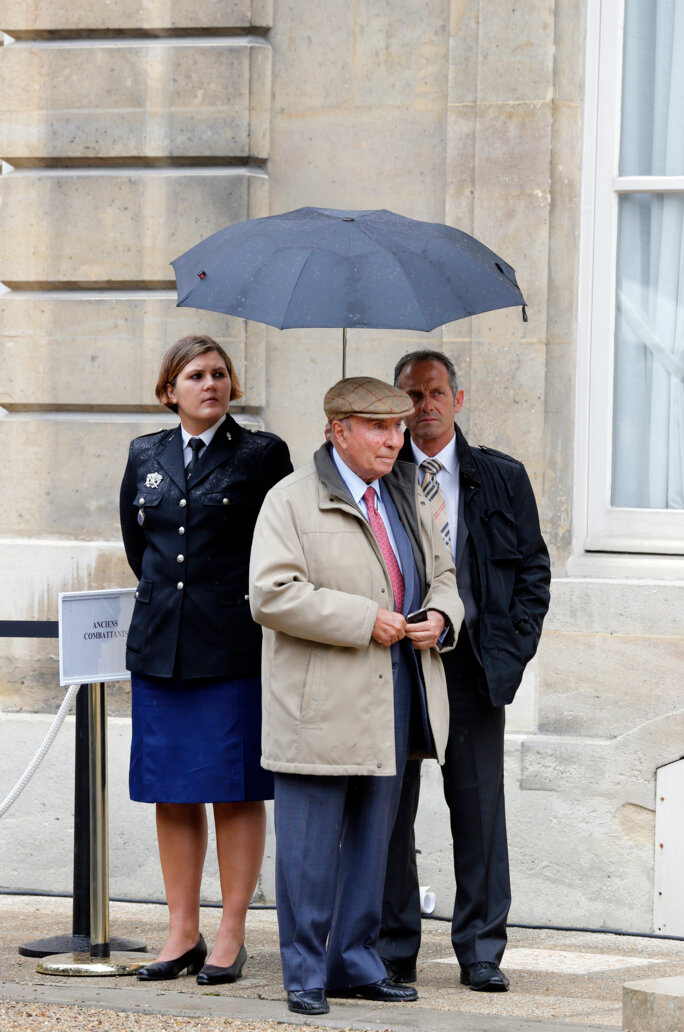In February 2014, French senator and billionaire Serge Dassault, one of France’s most powerful and influential political and industrial figures, was stripped of his parliamentary immunity in response to an investigation into an alleged votes-for-cash scam in a town close to Paris where he had been mayor for 14 years.
It was an undignified fall from grace for the conservative UMP party senator, doyen of the upper house where he has sat for more than ten years, and who inherited the Dassault aviation business from his father Marcel. Head of Groupe Dassault, an aerospace and media conglomerate – via which he has a majority stake in fighter and business aircraft manufacturer Dassault Aviation, and which also gives him ownership of French daily Le Figaro – Dassault, who turned 90 last month, is ranked by Forbes magazine as the 4th richest person in France (and 62nd worldwide) with a fortune of 14.5 billion euros.

Enlargement : Illustration 1

He is now at the centre of the ongoing judicial investigation in which he is suspected of having funded secret cash payouts to voters to secure his 2008 re-election as mayor of Corbeil-Essonnes, and also that of his successor in fresh elections two years later.
He has been placed under investigation –a French legal status one step short of being charged – for ‘buying votes’, ‘aiding and abetting illegal funding of an election campaign’ and for ‘funding an election campaign beyond authorised amounts’.
In September 2013 Mediapart obtained and published online a secretly recorded video in which Dassault admitted paying out a vast sum of money to help 'buy' local elections in Corbeil-Essonnes where he was mayor from 1995 until 2009. 'I gave the money,' he is heard saying to two men who asked him about the cash – 1.7 million euros in all - while they clandestinely recorded him. Mediapart also established that three months after the video was made the two men concerned were shot and wounded, one of them seriously.
Dassault subsequently launched a lawsuit against Mediapart for ‘invasion of privacy’ in an attempt to block publication of the recording, but lost the case. His lawyers lodged an appeal against the Paris court’s ruling, but in February this year they announced they had withdrawn all action against Mediapart.
The existence of the secret recording had previously been reported by the investigative and satirical weekly magazine Le Canard Enchaîné in December 2012, while daily newspaper Libération and the weekly news magazine Le Point have reported on how gangland culture and politics became closely entwined in Corbeil-Essonnes, a suburban town of 46,000 inhabitants situated 30 kilometres south of Paris.
Importantly, Dassault’s re-election in 2008 as mayor of Corbeil-Essonnes was annulled one year later by France’s Council of State, which acts as the highest court on issues of administrative justice. The Council’s ruling, pronounced in 2009, cited evidence of cash payments made to local inhabitants and which had compromised “the sincerity” of the election.
But while the ruling led to Dassault being stripped of his position as mayor of the town, a criminal investigation into the scandal was not launched. Subsequently, evidence emerged suggesting that the billionaire had continued to use the system of cash payments to help the election in 2010 of his successor and political ally, Jean-Pierre Bechter, who remains mayor of the town to this day.
Mediapart journalist Yann Philippin, formerly a reporter with French daily Libération, and Sara Ghibaudo, a journalist with French public radio station France-Inter, last week published a book, Dassault Système, with additional reporting by Virginie Roels, detailing the history of the affair, which is still under judicial investigation, and unveils how Dassault was for several years protected by members of the French judicial system after several police reports into the suspected scandal were simply shelved.
Bringing together the political, judicial, social and even psychological elements surrounding the case, Dassault Système presents a revealing picture of the workings of political corruption in France. It also paints an insightful portrait of a man who wanted to do better than his father, a wealthy heir to one of the jewels of French industry who sought, and would do all, to conquer the hearts of a working-class district where blood was also spilled in the dark background of the affair. Dassault, the authors write, is “a jovial and accessible billionaire, but who tends to consider that his power places him above the law”, a “paternalist politician” who believes “money is a natural means of winning over hearts”.
In the extracts from the book presented below and on page 2, Philippin and Ghibaudo recount how Serge Dassault benefited for several years from the actions of high-ranking magistrates who disturbingly shelved evidence of the scandal.
-------------------------
Extracts from Dassault Système (translated from the original French text by Mediapart):
The adage that “According to whether you be powerful or poor, court judgments will turn you into white or black”, [Editor’s note: from the 16th-century Fables of Jean de la Fontaine] is one that applies perfectly today to Serge Dassault. Under the five-year presidency of Nicolas Sarkozy, beginning in 2007, the judicial investigations centred on the billionaire progressed little, or not at all. Some were dropped, documents were lost, and there were preliminary investigations that faltered. It was not until 2013 that an investigation was handed to an investigating magistrate.
[…]
Sensitive cases involving Dassault only began appearing on the desks of public prosecutors at the end of the 2000s. In the power-broking and very hierarchical world of the public prosecutors’ office, Jean-Claude Marin is a figurehead […] A brilliant technician with a sharp political sense, he was criticized for having saved [from prosecution] leading members of the Right, a charge he rejects. In 2006 he was promoted to the title of Paris public prosecutor, the most prestigious post among prosecutors.
[…]
On June 8th 2009, the judicial equivalent of an unpinned grenade was lobbed into the Paris public prosecutor’s office, when the French Council of State annulled Dassault’s election [as mayor of Corbeil-Essonnes] on the grounds that “gifts of cash of a significant amount” had been made. Eight days later, on June 16th, the head of the police anti-organised crime squad, (the Brigade de répression du banditisme, or BRB), Hélène Dupif, passed on to Jean-Claude Marin a report entiteled ‘Voting corruption’.
During an investigation into a gang of truck stealers, the police had discovered by chance that one of them, whose phone was tapped, was an electoral agent for Serge Dassault. The transcripts of the phone taps, which covered the totality of the 2008 municipal election campaign, were highly incriminating: the delinquent went about inciting people to vote for Dassault in exchange for a driving licence and publicly-subsidised social lodgings. Deputy-mayor Cristela de Oliveira and a municipal council employee who received money from Dassault also appeared to be involved.
[…]
The police officer in charge of the BRB investigation underlined that the phone taps threw but “a partial light on the functioning of the municipal team”, concluding that: “In order to bring together the elements that constitute the crime of voting corruption, other wider enquiries are necessary, in the framework of a distinct investigation, led by a specialized and territorially competent service.”
'When we need money he helps us'
The prestigious financial crimes investigation office based in the Paris courthouses was the best equipped to lead such an investigation. As a JIRS – a specialized judicial investigation branch with powers to intervene across different jurisdictions - it was legally competent to lead complex investigations outside of its geographical base. But cases of vote-buying were not included in this. Given that the events took place in the Essonne département [equivalent to a county and situated south of Paris], Jean-Claude Marin handed the case to Jean-François Pascal, the public prosecutor of [the Essonne’s main town] Évry.

Enlargement : Illustration 2

The BRB report was duly sent to Évry, but without the letter of official notification that it had been retransmitted from Paris. Without this, its transfer is legally invalid. […] Without this precious note, public prosecutor Pascal had no right to investigate the case. But, intriguingly, the Evry public prosecutor’s office did not ask for the official notification of transfer. Thus, no investigation was opened, and the BRB report spent more than a year gathering dust at the Évry prosecutor’s office. Jean-François Pascal declined to answer our questions about the matter.
Several magistrates have confirmed to us that a case targeting Dassault would be among those which are called ‘signalled’, and which must, via the police and judicial hierarchies, be presented before the justice and interior ministers, and even the presidential office, all the more so given then-President Nicolas Sarkozy’s apparent close monitoring of judicial affairs. “At the time, sensitive cases were managed directly from the Château,” said one high-ranking justice ministry civil servant, referring to the presidential office, the Elysée palace, by its nickname of ‘the castle’.
While the civil servant did not witness any intervention, the source did recall the tensions that gripped then-justice minister Michèle Alliot-Marie ministerial inner cabinet during the days that followed the ruling by the State Council which annulled Dassault’s election. “I perceived a quite strong concern over the idea of a future investigation into the vote buying in Corbeil,” said the source. But a source close to the former justice minister said “Michèle Alliot-Marie and several of her collaborators at the time have no recollection of this report about phone taps”, adding that Alliot-Marie “has always gone about things so that the justice system functions in all independence and has never given instructions concerning a particular case”.
[…]
But the saga didn’t end there. On January 11th 2010, the Évry public prosecutor was given a report by the Évry-based police branch for département security [the Sûreté départementale], or SD. During a search operation, police officers stumbled across three cheques signed by Serge Dassault’s close aid Jacques Lebigre, written out in favour of the girlfriend of a Corbeil delinquent and which totalled 8,500 euros. The latter admitted being the beneficiary of the money, and detailed his profitable relationship with Dassault’s former campaign director. “We help him when things erupt in our neighbourhoods [and] during election periods,” the young delinquent told police, adding that, in exchange, “when we need money he helps us”.
Public prosecutor Jean-François Pascal took personal charge of the case. A few days before the report was delivered, he asked the police officers to make copies of the cheques and the bank account records of Lebigre. That was when the SD discovered that, two weeks before the September 2009 election, Lebigre began what they described as “the regular emission of a certain number of cheques for large sums”. Despite the findings of the police, Pascal did not open an investigation. He declined to explain that decision.

Enlargement : Illustration 3

It was the French finance ministry’s anti-money laundering investigation agency, Tracfin, which finally unblocked the case. Tracfin had launched a detailed enquiry into Lebigre’s bank accounts, and found that around the time of the elections in 2008 and 2009, he had received a total of 156,537 euros which, Tracfin reported, “came from accounts opened in the name of Mr or Mrs Serge Dassault”. Lebigre had withdrawn part of the sum in cash, and had signed checques in favour of businesses and associations, as well as about 30 inhabitants in Corbeil. […] On June 7th 2010, Tracfin sent its report to the newly-appointed public prosecutor in Évry, Marie-Suzanne Le Quéau.
With the case now building up to such a degree, an investigation had to be opened. The question was who would be given the investigation. After consultation with a member of the senior magistrates who oversee the public prosecutor’s office, it was decided to hand the case to Jean-Claude Marin, the Paris public prosecutor, who opened a preliminary investigation. This was carried out by the national police force’s anti-corruption squad, the DNIFF.
After having been taken off the case, the Évry public prosecutor went about helping the investigation led by her colleague in Paris. Le Quéau went about searching the archives for related documents and came across the two separate police reports which her predecessor had not followed up, and sent them on to the Paris public prosecutor’s office. It was that move that led to the phone taps and the investigation into the three cheques signed by Lebigre finally being added to the new investigation.
-------------------------
Dassault Système, by Yann Philippin and Sara Ghibaudo, with additional reporting by Virginie Roels, is published in France by Robert Laffont, priced 20 euros.
-------------------------
- The French version of this article can be found here.
English version by Graham Tearse


